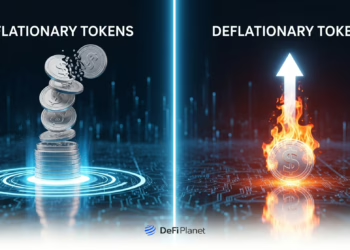As the global adoption of cryptocurrency grows, more countries are becoming interested in it.
Regulations are being developed in various regions to regulate and supervise the use of cryptocurrencies.
Some countries that support cryptocurrencies have even made them legal tender. El Salvador was one of the first countries to acknowledge Bitcoin as a legal medium of exchange. Nayib Bukele, the president of El Salvador, is an outspoken supporter of BTC, believing that adopting it would put the country in a good light and attract economy-boosting investment opportunities.
Another country that has made Bitcoin legal tender is the Central African Republic, the home of the Sango Project.
Bitcoin and other cryptocurrencies have been banned in some countries.
For example, China has prohibited the use of cryptocurrencies as well as crypto-related activities such as mining in the country.
It built a firewall to prevent people from accessing cryptocurrency websites.
On May 13, 2022, the Nigerian Securities and Exchange Commission (SEC) issued a rule book titled “New Rules on Issuance, Offering Platforms, and Custody of Digital Assets.”
This document contains the licensing rules for organizations that deal with digital assets, categorizing these organizations and outlining operational guidelines.
Central Bank Digital Currencies (CBDCs) are being developed in some countries to either supplement or replace regulated cryptocurrencies.
China, for example, is developing its own CBDC to serve as the country’s sole digital currency because cryptocurrencies are prohibited.
Some countries are more open to crypto usage than others.
The Central African Republic has made headlines for its Sango Initiative, which aims to increase the country’s adoption of cryptocurrencies, particularly Bitcoin.
This article examines what the Sango Initiative entails, the various components of the project, whether the initiative will result in the establishment of a CBDC, and the potential benefits of the project to the continent.
What is the Sango Project?
The Sango Project is a cryptocurrency initiative launched by the Central African Republic government to accelerate the region’s adoption of cryptocurrencies, particularly Bitcoin and blockchain technology.
Since making Bitcoin legal tender, the Central African Republic has been making concerted efforts to develop a digital monetary system based on blockchain technology and Bitcoin. This is the underlying principle of the Sango Project.
According to its genesis paper, Sango is a “Bitcoin Layer 2 solution, powering a new digital monetary system, representing a step forward in the evolution of digital currency. It is a system backed by both the legitimacy of the state and Bitcoin. ”
Sango is not a stablecoin, meaning that it does not face “risks of de-pegs” like tokens such as Terra’s UST. The genesis paper does not classify it as a CBDC either, stating that Sango is “partially decentralized, unlike CBDCs.”
Although the government is creating Sango, it will be semi-decentralized to allow private organizations to be actively involved in its activities.
The Central African Republic is invested in ensuring that cryptocurrencies and crypto firms are fully backed by the government, and to do this, they have taken some steps.
The government took the first step, making Bitcoin a legal tender in April 2022 by creating the Bitcoin Law (Law No. 22/21st of April).
The genesis paper went on to disclose other steps being taken by the government to achieve this.
- Bitcoin Standard: Reference currency
- All exchanges of cryptocurrencies and related businesses are not subject to taxes.
- The incorporation of the National Agency for Regulation of Electronic Transactions (Agence Nationale de Régulation de Transaction Électronique “ANRTE”).
What Are the Elements of the Sango Initiative?
The Sango Initiative includes a number of activities that it intends to carry out in order to achieve its overarching goal of creating a digital monetary system..
Legal environment for cryptocurrencies
As part of the Sango Project, the Central African Republic is creating a legal framework for cryptocurrencies. It began by legalizing Bitcoin as a currency in the country. A Bitcoin law has been enacted to enforce this.
Tokenization
Through tokenization, the Sango Initiative will ensure that users have “democratized and decentralized access to natural resources.”
The Central African Republic is rich in natural resources that have long been mined.
With the Sango Initiative, the country intends to provide access to these resources via the blockchain. These assets will be tokenized and tradeable.
Crypto City and Crypto Island
By embracing bitcoin and blockchain technology, the Central African Republic hopes to establish itself as the African continent’s cryptocurrency capital.
To that end, the Sango Initiative is expected to result in the establishment of a crypto city and crypto island.
The Central African Republic established the Sango Project in order to create a Crypto Island, which would serve as the Silicon Valley of African crypto and blockchain firms.
The Crypto Island is expected to serve as the country’s Crypto Economic Zone, providing incentives to crypto firms operating in the region. The government will accept Bitcoin or SANGO in exchange for land in the Crypto City.
E-residency and Citizenship Programs
The Sango Project includes e-residency and citizenship programs. This is open to anyone who wants to invest in the crypto initiative.
Foreigners seeking citizenship or residency in the Central African Republic can take advantage of this initiative.
Tax-Free haven
The Sango Initiative will provide organizations with a tax-free haven for their crypto activities as part of its plan to create a favorable environment for crypto firms in the country. This is intended to encourage more crypto firms to set up shop in the Crypto City.
African Crypto Hub
Apart from the Central African Republic, many African countries are not enacting cryptocurrency-friendly legislation.
For example, the Nigerian Central Bank has made it illegal to use the banking system to engage in crypto-related activities.
Residents cannot use their bank cards to buy cryptocurrencies or receive payments from cryptocurrency platforms in their bank accounts.
The government will finance the hub, which will attract crypto firms from all over the globe. According to the genesis paper, “this represents the primary factor for creating new jobs and stimulating the educational system for the native population.”
Sango App
Residents of the Central African Republic can use the Sango app to access the features of the Sango Project. According to the genesis paper, it acts as a “gateway between the citizen and the State.”
Bitcoin mining
In recent times, several countries have placed a ban on crypto mining in their regions. Some have claimed that they banned this activity because it consumes a large amount of energy, putting a strain on the region’s energy generation.
The Sango Initiative will attract bitcoin miners to set up their farms in the Central African Republic. All mining activity will be done using renewable energy sources.
Is The Sango Project a CBDC?
Central Bank Digital Currencies (CBDCs) have become a hot topic, with different governments experimenting with the idea of releasing their own.
Unlike other digital money and payment systems being developed by different governments, the Sango Project is not a CBDC.
According to the genesis paper, “CBDCs are pegged to the value of that country’s fiat currency, therefore inheriting its fundamental flaws.” It notes that “cryptocurrencies excel in their function of a reliable store of value for African nations as opposed to FIAT money due to their continuous devaluation and inflation.”
The genesis paper faults the development of CBDCs, claiming that government-issued digital currencies will inherit the issues linked with fiat currencies. It outlines some issues with African countries’ fiat currencies and why these countries need to adopt cryptocurrencies.
- Unavailability of financial infrastructure for a majority of the population.
- Instability of fiat money due to inflation.
- Underdeveloped financial transaction and settlement infrastructure.
In Conclusion,
- The Sango Project is a cryptocurrency initiative launched by the Central African Republic government to accelerate the region’s adoption of cryptocurrencies, particularly Bitcoin and blockchain technology.
- Sango is not a stablecoin, which means it does not face “risks of de-pegs” like Terra’s UST. According to the genesis paper, Sango is not classified as a central bank digital currency and is “partially decentralized, unlike CBDCs.”
- The Central African Republic is developing a legal framework for cryptocurrencies as part of the Sango Project.
- The Sango Project is not a CBDC development project.
If you would like to read more articles like this, visit DeFi Planet and follow us on Twitter, LinkedIn, Facebook, and Instagram.
“Take control of your crypto portfolio with MARKETS PRO, DeFi Planet’s suite of analytics tools.”





















